AI-powered, automated content generation is being deployed by brands to transform targeting and personalisation, according to researchers BCG. They say brands hope the technology will help with delivering more powerful and effective word combinations to improve consumer engagement, say the authors of the report.
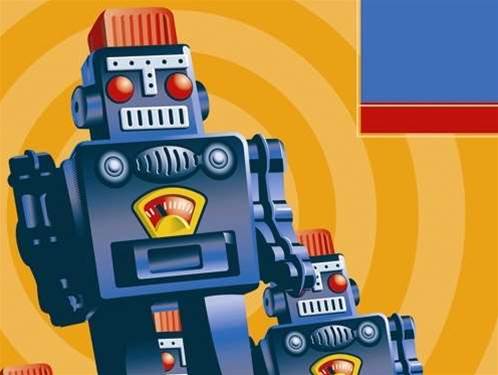
Meanwhile, the marketers we spoke to say they are seeing gains, but caution that when it comes to personalisation you need to pick your moments.
In fact, research by Gartner in recent years suggests personalisation is more like a solution looking for a problem, it is beloved by marketing technology vendors, but enterprises have struggled with complexity.
In the BCG research thought, Silvio Palumbo, Mario Simon, Will Cornock, Chris George, and Yohei Shoji, write that AI-generated creative content could generate $800 billion in incremental revenue worldwide and $200 billion for Fortune 500 companies.
Firstly, the world of real things
So what is the real-world experience for marketers?
Rahul Bakaya, chief marketing officer at Sydney based property investment business QuarterAcre, began to deploy a number of AI tools in his content strategy in late September. The driving forces in the uptake of these tools, he told Digital Nation, were to increase website traffic and conversion.
"Before, what used to happen is the digital marketers like us, used to manually scroll through analytics. [We would] have Google Ad Manager open and see what are the topics that have got a good bid strategy and have got a good search volume. And then we used to start optimising those topics. And then categorise those topics," says Bakaya.
"Now we use an AI tool. We just write some keywords that our business wants to focus on and wants to get targeted on those audience. The AI tool will just throw in the ideas like 'hey listen, you can write on these topics and it will increase your traffic by so much.' So if you think about it, it actually reduced about three or four steps right there."
Bakaya says that QuarterAcre deploys AI for both content creation and content execution.
"Whether it is a minor description, whether it is a whole blog article, whether its an ad copy. All my ad copies, most of them are AI driven," he says.
Not only has the AI increased productivity Bakaya says, but it has reduced costs as well as time spent on content creation. He said that in the last 6 weeks, the company has seen exponential growth in its Facebook page and Instagram reach.
When it comes to conversion, the company has seen an uptake of 1.3 per cent in email conversion, 13.5 per cent in paid social conversion and an overall average growth of 3 per cent in conversion.
Despite this success, for copywriters fearful of their jobs being wiped out by robots, Bakaya insists human sense checking is still essential.
"Copywriters should move from calling themselves copywriters to content strategists," says Bakaya.
"What the AI is giving you is not perfect, you still have to sense check it."
Effective personalisation
BGC research from 2020 found that the key focus of nine in 10 executives in their digital transformation journey is personalisation and an approach that puts the customer at the core of their strategy.
While that may sound like motherhood, the reality is that isn't always an easy row to hoe. IT research group Gartner for instance warned in 2019 that 80 per cent of marketers would abandon their personalisation efforts by 2025 due to lack of ROI, the perils of customer data management or both.
Part of the problem may be that the industry oversold the virtues of personalisation, rather than focusing on where it is most effective.
Iris Chan, a Sydney based B2B marketer in enterprise IT who has previously worked for brands such as IBM, Seismic and Cisco during her career told Digital Nation she believes personalisation is much more compelling and much more relevant later in the buying cycle.
"That is the stage where you've got a seller interacting with a buyer. I've seen more value there in that part of the journey, versus right upfront on a website in that very early stage of marketing interaction," she said.
"The current hype and focus have been on personalisation at the website or search stages. But after that when the buyer (particularly in the B2B context) starts interacting with a real person as they progress through the buying journey, things could turn generic if similar personalisation tools aren't available to a sales rep. That's where the experience gets broken."
Chan suggested marketers might also be well-served focusing on the consistency of the brand experience and identifying the stage of the buying journey where personalisation would create the most value for the customer.
A new hope
Marketing technology providers who have long pushed personalisation are looking to AI to solve some of the problems identified by analysts like Gartner.
As an example earlier this year San Francisco based Sitecore, introduced AI-powered auto personalisation into its digital experience platform. The company is considered a market leader in DXPs and one of a clutch of vendors along with Adobe, Acquia, Episerver and LifeRay identified as such in Gartner's Magic Quadrant.
At the time of its release, Sitecore's Desta Price, executive vice president of product said, "We want to make it easy and cost-manageable for our customers to benefit from the power of AI. "
Price said that by integrating its personalisation innovation directly into its digital experience platform, brands would be able to more quickly share personalised messages at scale.
The BCG report meanwhile reveals how brands are hoping AI-driven technology will help by both automating content creation and shaping how companies communicate with customers.
According to the report, “The basic framework of personalisation is well-known: delivering the right product at the right price to the right person through the right channel at the right time.
“Automating both the content generation and the targeting of individual messages represents a step-change in personalised marketing.”
Where in a traditional campaign, the success of the copy is dependent on the skill of a copywriter, AI creative-content generation uses an algorithm to select the most effective words, formatting and call to action with hundreds of thousands of options. It will then test a handful of options in the market to identify the most successful compilation in various channels, including email, websites and apps.
“AI creative-content generation is coupled with a robust, scientific, test-and-learn approach to the creative development process. The best variants of the campaign are rolled out and their performance rigorously measured to further train the machine-learning engine for future use. In this way, AI augments human copywriters’ ability to make optimal decisions at scale.”
The software will rely on the vendor’s existing database of context-language, which will assist the AI to improve upon and grow this base.
Results reflect huge successes in incremental value, with a 40 per cent average increase in conversion rates across engagement channels.
“For companies already far up the personalisation maturity curve, this is an opportunity for further advancement in how they communicate with consumers. For those at an earlier point in the journey, the technology offers a chance to leapfrog basic capabilities and achieve much more sophisticated enterprise-wide personalization at scale,” the authors said.
Despite the technology being new to the market, it is fast entering the mainstream, with many Fortune 100 companies either already realising value or looking to trial it, according to BCG.


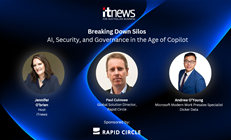
.png&h=140&w=231&c=1&s=0)
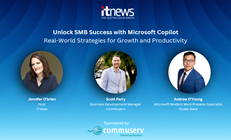





.png&w=120&c=1&s=0) Security Exhibition & Conference 2025
Security Exhibition & Conference 2025
 Integrate Expo 2025
Integrate Expo 2025
 Digital As Usual Cybersecurity Roadshow: Brisbane edition
Digital As Usual Cybersecurity Roadshow: Brisbane edition
 iTnews Benchmark Security Awards 2025
iTnews Benchmark Security Awards 2025




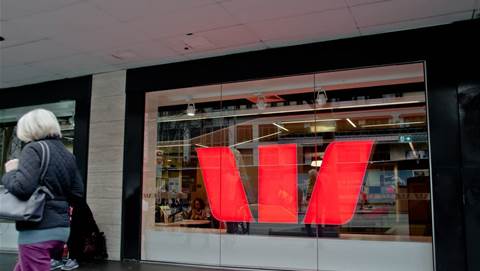


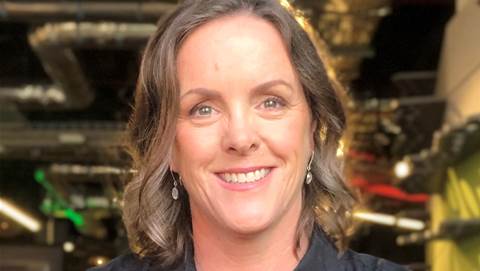



.jpg&h=140&w=231&c=1&s=0)


